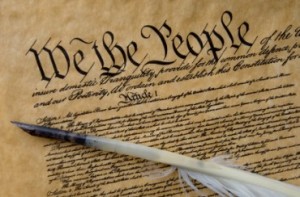 The United States Constitution doesn’t say one word about education. That may surprise some people. The Founders didn’t consider government—at least at the federal level—to be the source of education. The 10th Amendment made it crystal clear [if only we would see the obvious intent of that amendment so clearly today] that whatever authority was not found in the Constitution was left to the states and to the people, respectively.
The United States Constitution doesn’t say one word about education. That may surprise some people. The Founders didn’t consider government—at least at the federal level—to be the source of education. The 10th Amendment made it crystal clear [if only we would see the obvious intent of that amendment so clearly today] that whatever authority was not found in the Constitution was left to the states and to the people, respectively.
Educational authority is not found there.
Yet even if we recognize that, we then make the mistake of assuming that education should be sponsored by the state governments. Part of the reason we are willing to give them this authority is that we think education is the answer for all societial ills.
 I’ve written about Noah Webster a couple of times before. He’s considered the Father of Early American Education, but he understood how enthusiasm for education can lead us into false assumptions. Webster noted,
I’ve written about Noah Webster a couple of times before. He’s considered the Father of Early American Education, but he understood how enthusiasm for education can lead us into false assumptions. Webster noted,
In correcting public evils, great reliance is placed on schools. But schools no more make statesmen than human learning makes Christians. Literature and scientific attainments have never prevented the corruption of government.
The only thing that will prevent corruption in society is a people with the proper character. And the only way to ensure that kind of character is through faith in Christ. Webster understood this when he said,
In my view, the Christian religion is the most important and one of the first things in which all children, under a free government, ought to be instructed.
The Founding generation realized that we would not remain a free government without a solid Biblical basis in the people. Education without those Biblical roots would be worse than useless—it would be dangerous.
That explains why we are where we are today.
